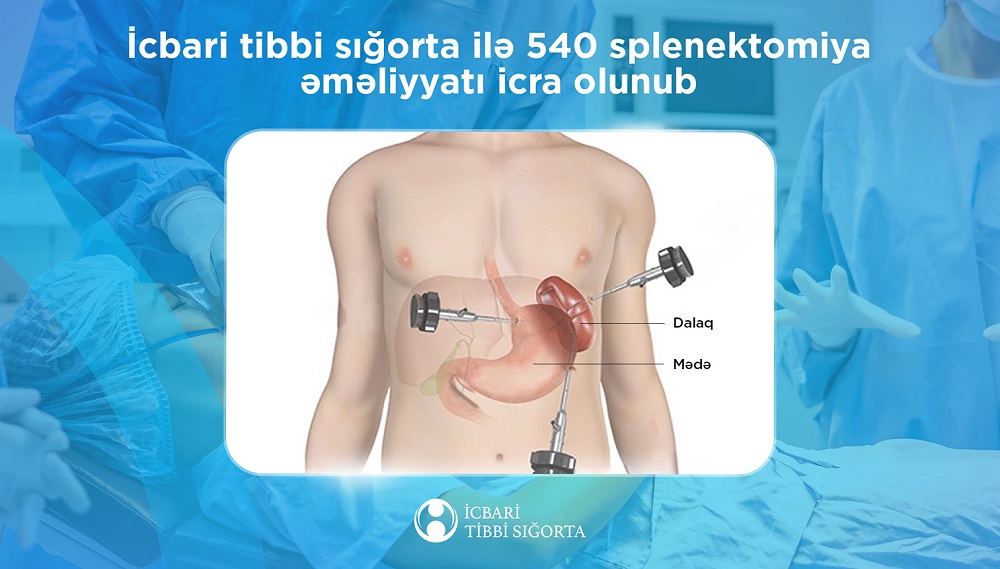 1542
1542 540 Splenectomy operations performed under mandatory health insurance
24.06.2024, 14:52
From 2022 to April 2024, a total of 540 splenectomy operations were performed under mandatory health insurance. Of these, 530 were total splenectomies (complete removal of the spleen) and 10 were partial splenectomies.
Splenectomy is primarily performed through an incision in the abdominal cavity, though it can also be done laparoscopically. Both surgical methods are covered by mandatory health insurance.
Diagnostic procedures such as ultrasound (USM), X-rays, CT scans, MRI, biopsies, and other necessary laboratory and instrumental examinations are conducted under mandatory health insurance prior to the surgery.
Indications for splenectomy include abdominal trauma causing disruption of anatomical structures, complications from pathological conditions such as spleen rupture, aneurysm of the splenic artery, benign and malignant tumors, abscesses, and parasitic or non-parasitic cysts, thrombosis of the splenic vein associated with upper gastrointestinal bleeding, ineffective therapeutic treatment for Werlhof’s disease (a chronic autoimmune disorder characterized by a reduced platelet count), pathological enlargement of the spleen due to autoimmune or hematological diseases.
The spleen, an important organ located under the left rib and to the left of the stomach, plays a crucial role in protecting the blood and immune system. It contributes to the formation of blood cells and performs a filtration function, removing bacteria and viruses from the body. Individuals who have undergone splenectomy are at higher risk for infections such as pneumonia and meningitis. Therefore, it is recommended that these individuals receive vaccinations against meningococcal, pneumococcal, and other infections a few weeks before a planned splenectomy or three weeks after an urgent procedure.
Splenectomy operations covered by mandatory health insurance are performed at state medical facilities supervised by TABIB and at the Scientific Surgery Center named after M.A. Topchubashov under the Ministry of Health.
Last News
Allergiyaların diaqnostika və stasionar müalicəsi icbari tibbi sığorta hesabına göstərilir

Mərkəzi Neftçilər Xəxtəxanasına müasir tibbi avadanlıqlar ianə edilib

Ağciyərlərə yığılmış mayenin çəkilməsi məqsədilə 5643 prosedur icra olunub

Pirallahı Tibb Mərkəzinə media-tur təşkil olunub

“Yanıq yaralarının müalicəsi” mövzusunda təlimə start verilib

MRT və KT müayinələri üçün yeni ödəmə qaydası tətbiq olunacaq

Zaur Əliyev Ağcabədi rayonunda vətəndaşları qəbul edib

İcbari tibbi sığorta ilə 50 mindən artıq angioqrafiya müayinəsi aparılıb

Türkiyənin Sosial Müdafiə Qurumunun nümayəndə heyəti Azərbaycana səfər edib

Qadınlarda yumurtalıq xərçəngi riskini azaldan əməliyyat icbari tibbi sığorta təminatına daxildir


 View all news
View all news 